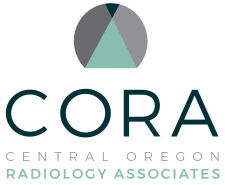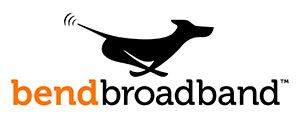
Ways To Give
There are variety of methods you can consider when planning to include The Tower Theatre Foundation in your estate planning. The Tower encourages you to discuss your giving ideas with your financial or legal advisors. The planned giving information provided here is not intended as tax, legal or financial advice. For more information on how you can leave a lasting legacy to The Tower Theatre Foundation, please contact Steve Magidson (stevem@towertheatre.org)
Download Legacy Commitment Form
Ways to Give
- CASH - An outright gift of cash can be the simplest way to provide a gift via a bequest.
- LIFE INSURANCE - You can make The Tower the beneficiary of a life insurance policy, and your estate will receive a charitable deduction from estate taxes for that gift.
- PUBLICLY TRADED SECURITIES - Publicly traded securities (stocks and bonds) can be used to make an outright charitable gift. Securities held longer than one year can be given, and you will be entitled to a charitable deduction from your income tax for the full fair market value of those securities. You also may be able to defer or completely avoid capital gains tax on the securities, depending on the type of gift. Publicly traded securities can also be given to The Tower to establish a life income gift or through one's estate. Publicly traded securities may be transferred electronically from a brokerage account to The Tower.
- RETIREMENT PLAN GIFTS - Providing a gift from your IRA or other retirement plan can be a tax-efficient and simple way of including The Tower in your estate plan. The best method is to name The Tower as a primary or secondary beneficiary on your plan's beneficiary designation form. A charity that is named as the beneficiary does not pay income or estate taxes on the distribution, unlike individual beneficiaries. To name The Tower as a beneficiary, you can obtain a beneficiary designation form from your IRA plan administrator.
- IRA REQUIRED MINIMUM DISTRIBUTION (RMD) - Due to recently enacted legislation, you may also be able to make a gift to charity with a distribution from your Individual Retirement Account (IRA), and take advantage of tax savings. American citizens over the age of 70½ can distribute up to $100,000 in a calendar year from an IRA to The Tower or other charities, tax-free. This distribution to charity can be a significant benefit for IRA owners who are required each year to take minimum required distributions, which are included in their gross income for income tax purposes. If an IRA owner directs the IRA plan administrator to distribute any amount up to $100,000 to charity, the distribution counts toward the owner's minimum required distribution, but is not included in his or her income for income tax purposes. Although the IRA owner is not entitled to a charitable deduction for the distribution, the distribution benefits the charity.
- How It Works:
- You must be 70½ or older at the time of distribution.
- You may distribute any amount up to $100,000 in a calendar year to charity, as long it is completed by December 31 of the year in which you intend to make the charitable distribution.
- Your IRA administrator must make the distribution directly to the charity, or you may write a check payable to the charity from your IRA checkbook.
- For a sample letter of instruction to your IRA administrator requesting a distribution to The Tower, please contact Michelle Andre (need email) or Steve Magidson (need email)
- If you make a gift to The Tower from your IRA, please include written instructions on how you would like to designate your gift by making a note on your IRA check. Before proceeding, you should also consult with your tax advisor to discuss your particular situation including any impact of your state's tax laws. For example, the following transfers will not qualify: distributions to private foundations, to donor advised funds, for life income gifts (e.g., charitable remainder trusts), and for any purpose that entitles you to receive a benefit.
- Who should be the Trustee? You can be your own trustee, however, most people who name themselves as trustee have the paperwork handled by a qualified third party administrator.
- How It Works:
- CHARITABLE REMAINDER UNITRUSTS - A charitable remainder trust (CRUT) is an irrevocable trust. Once established, the CRT distributes a fixed percentage of the value of its assets (on an annual or more frequent basis) to you, and at your death, the remaining balance of the CRUTs assets are distributed to the designated charity. The trustee determines the fair market value of the CRUT's assets at the time of contribution.
- How it Works: You may transfer cash or appreciated, marketable securities to a trustee, who then invests the trusts’ assets and in exchange, you receive fixed, annual payments to you, for the rest of your life. The rate may vary from year to year, depending upon the performance of the trust’s investments. The payout percentage is based on age, so the older you are, the higher the rate. Trust income, which is generally taxable in the year it is received, can be paid to you for your lifetime. If you are married, it can be paid for as long as either your or your spouse lives. The income can also be paid to your children for their lifetimes or to any other person or entity you wish, providing the trust meets certain requirements. Instead of lasting for someone’s lifetime, the trust can also exist for a set number of years (up to 20).
- Benefits:
- Convert an appreciated asset into lifetime income.
- Reduce your current income taxes with charitable income tax deduction.
- Pay no capital gains tax when the asset is sold.
- Reduce or eliminate your estate taxes.
- Gain protection from creditors for gifted asset.
- Benefit one or more charities.
- Receive more income over your lifetime than if you had sold the asset yourself.
- Leave more to your children or others by using life insurance trust to replace the gifted asset.
- CHARITABLE REMAINDER ANNUITY TRUSTS – An annuity trust is similar to a CRUT except that it offers a fixed income in which you receive annual payments of a fixed percentage of the trust's value. With an annuity, regardless of the trust’s performance, your income will not change. This option is usually a good choice at older ages. It doesn’t provide protection against inflation like the unitrust does, but you may prefer the security of being able to count on a definite amount of income each year. Cash or readily marketable assets are best to fund an annuity trust.
- How it Works: You transfer cash, securities or other appreciated property into a trust, similar to the CRUT. The trust makes fixed annual payments to you or to beneficiaries you name. When the trust terminates, the remainder passes on to The Tower.
- Benefits:
- You receive an immediate income tax deduction for a portion of your contribution to the annuity trust.
- You pay no up-front capital gains tax on any appreciated assets you donate.
- You or your designated income beneficiaries receive stable, predictable payments for life.
- You have the satisfaction of making a significant gift that benefits you now and The Tower later.
Ready to join? Please download, complete and return the completed form (found above) to Steve Magidson (stevem@towertheatre.org








